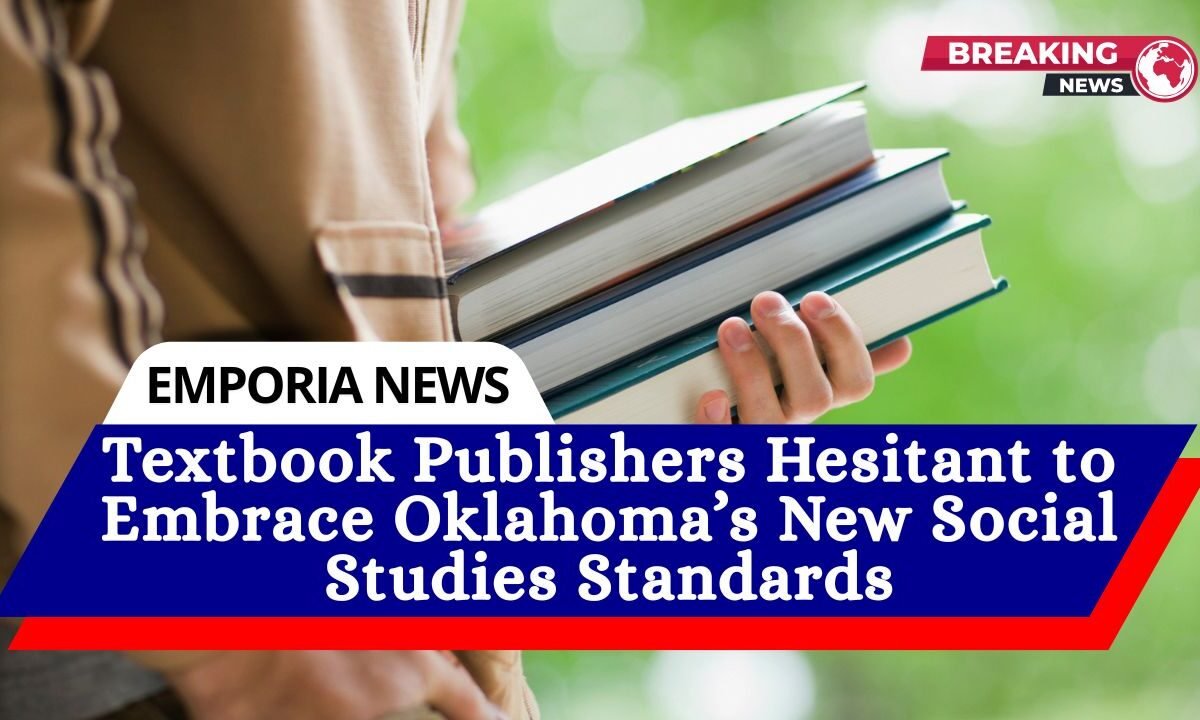As the state introduces its newly approved social studies standards, a noticeable shift is happening in the textbook publishing industry: fewer companies are submitting their materials for approval.
According to reporting from Oklahoma Watch journalist Jennifer Palmer, publishers are stepping back from the process, citing concerns with the politically and religiously charged requirements embedded in the updated standards.
“We’re seeing a significant drop in the number of publishers trying to get their books approved,” Palmer explained during a recent report.
Sharp Decline in Publisher Participation
Six years ago, 18 publishers submitted social studies materials for classroom consideration. Today, that number has dropped to just 11, signaling widespread reluctance to conform to Oklahoma’s updated guidelines.
Palmer attended a Textbook Committee meeting where publishers presented their revised content. The current review cycle focuses on social studies and financial literacy materials—subjects that have been especially impacted by the new standards.
What’s in the New Standards?
The recently passed standards include controversial elements such as:
- Old Testament Bible stories to be included in curriculum
- Teaching that the COVID-19 virus originated from a lab in China
- Coverage of debunked 2020 election fraud theories
These requirements have sparked backlash from educators, lawmakers, and civil liberties advocates. A group of 33 Oklahomans has filed a lawsuit with the Oklahoma Supreme Court, seeking to halt the implementation of these standards.
How Publishers Are Responding
Most textbook submissions do not fully align with every new requirement. For instance, Palmer noted that a Studies Weekly newsletter only briefly mentioned the Ten Commandments and referenced David and Goliath without elaborating on the biblical story.
In contrast, InquireED, a publisher of elementary curriculum, avoided directly including Christian stories in its materials. Instead, it advised educators to use an edit feature on its digital platform to manually add content that meets these specific standards—demonstrating a cautious workaround.
Some publishers, such as Houghton Mifflin Harcourt, withdrew entirely from the Oklahoma process as early as 2023.
Moral-Based Criteria Fuel Further Concerns
The Oklahoma Department of Education uses a 12-point rubric to evaluate textbooks. While some criteria are academic, others are more ideologically framed, raising eyebrows among critics. Examples include:
- “Emphasize the importance of the family as the core of American society…”
- “Do not degrade the traditional roles of men and women, boys and girls.”
- “Treat the historical origins of humankind in an objective and unbiased manner.”
Publishers are scored based on how well their materials align with these points. The Textbook Committee then votes on whether to approve each submission.
Educators and Lawmakers Push Back
Rep. John Waldron, a former social studies teacher representing Tulsa, expressed strong concerns about the direction the state’s educational content is taking.
“Oklahoma’s classrooms include students from diverse backgrounds,” he said. “We should not impose a government-sanctioned religious viewpoint on public education.”
Waldron also criticized the inclusion of discredited election fraud theories, comparing the approach to tactics seen in authoritarian regimes.
“When truth is replaced by politically motivated narratives, we undermine the very integrity of education,” he said.
The rollout of Oklahoma’s revised social studies standards has triggered a wave of resistance from textbook publishers, educators, and advocates.
With major content providers opting out and remaining publishers struggling to meet ideologically driven guidelines, the state faces a potential decline in the quality and diversity of educational materials.
As the standards remain in place for the next six years, debates around academic freedom, religious neutrality, and truth in education are likely to intensify—raising questions about the future of public education in Oklahoma.




